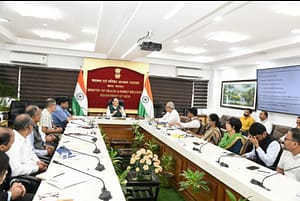Following a nearly century-long effort, Georgia has been certified malaria-free by the World Health Organization (WHO). With today’s announcement, Georgia joins the ranks of 45 countries and 1 territory that have achieved this milestone.
“Today we congratulate the people of Georgia for their decades of targeted and sustained actions to eliminate malaria, one of the world’s leading killers,” said Dr Tedros Adhanom Ghebreyesus, WHO Director-General. “Georgia’s commitment and success gives us hope that a malaria-free world is possible.”
“This is a huge milestone worth marking; with Georgia’s achievement, the WHO European Region is another step closer to initiate certification as the first malaria-free region in the world,” said Dr Hans Henri P. Kluge, WHO Regional Director for Europe. “This doesn’t happen in a vacuum, this was made possible thanks to sustained investment, dedication of the health workforce and targeted efforts in prevention, early detection and effective treatment of all malaria cases.”
Certification of malaria elimination is granted by WHO when a country has proven, beyond reasonable doubt, that the chain of indigenous transmission has been interrupted nationwide for at least the previous three consecutive years.
The Minister of Health, Mikheil Sarjveladze, noted that certifying Georgia as malaria-free is a recognition of the sustainability of its healthcare system, “this success means that Georgia can address important health challenges.”
A longstanding challenge
Malaria has plagued Georgia since ancient times. Before the introduction of systematic control efforts in the early 1900s, at least 3 malaria parasite species—P. falciparum, P. malariae and P. vivax—were endemic in the country. In the 1920s, an estimated 30% of the population suffered from malaria caused by the P. vivax malaria species.
By 1940, large-scale mosquito control programmes had helped reduce malaria cases significantly through improved access to diagnostic and treatment facilities. A few years later, however, World War II caused a surge again due to population movement and the strain on health facilities.
In the post-war period, Georgia launched an intensive programme aimed at eliminating malaria, using newer medicines, insecticide spraying and robust entomological surveillance. The campaign successfully interrupted the transmission of P. falciparum by 1953, P. malariae by 1960 and P. vivax by 1970.
Georgia remained malaria-free for 25 years, but by 2002, malaria had reemerged in the country with 474 cases reported.
Renewed commitments to stop the disease
In 2005, together with 9 other countries in the WHO European Region, Georgia signed the Tashkent Declaration, reaffirming its pledge to eliminate malaria. The intensified interventions that followed significantly reduced malaria incidence in Georgia, with the last indigenous case recorded in 2009. By 2015, all 53 countries of the WHO European Region, including Georgia, reported zero indigenous cases of malaria.
To prevent further re-establishment of malaria transmission in the region, the original signatories of the Tashkent Declaration issued the Ashgabat Statement in 2017 committing to take all efforts to remain malaria-free. Türkiye is the only country in the WHO European Region remaining to be certified.
In 2024, during the Georgia’s malaria-free certification process, members of the Technical Advisory Group on Malaria Elimination and Certification, an independent WHO advisory body, noted that Georgia has a well-functioning and adequately resourced health system, strong public-private cooperation, and political commitment to maintaining a malaria-free status.
Source:WHO











